March's Featured Collection Announced
Contemplations on Faith and Religion
Easter is coming soon and we’re embracing the Easter season with a collection featuring films that examine how we as humans engage with, question, and are often in conflict with the super-natural forces in our religious traditions.
Silence (2016)
Martin Scorsese
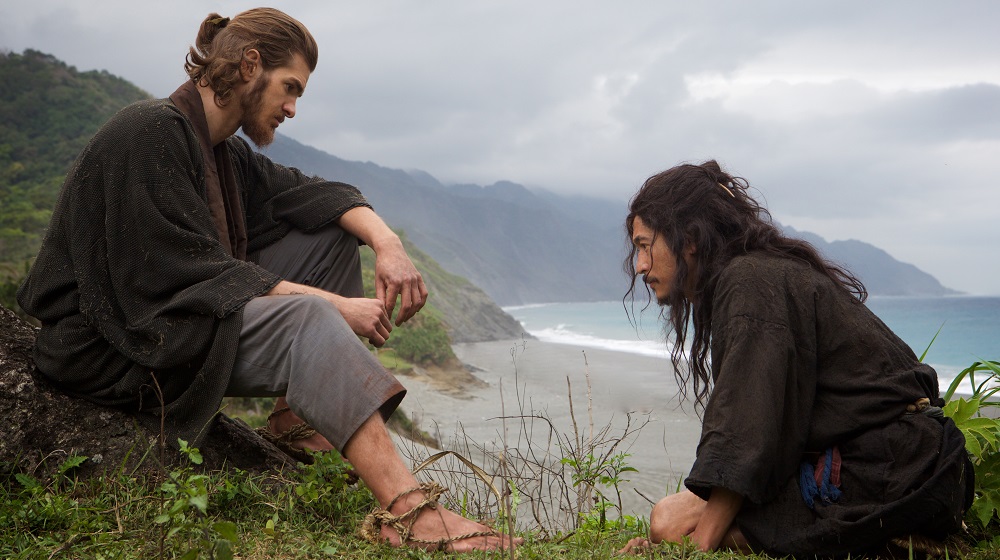
In this passion project from director Martin Scorsese (who spent nearly three decades trying to get it made), a 17th century Portuguese Jesuit priest (Andrew Garfield) receives word that his mentor (Liam Neeson) has renounced his faith while on a mission in Japan. Concerned, he travels to the island nation with another clergyman (Adam Driver) to investigate, only to find that the country’s Christian population are being systematically exterminated. Witnessing the inglorious reality of torture and martyrdom committed against Japanese Christians rocks his faith to the core. Based on Shusaku Endo’s acclaimed 1966 novel.
First Reformed (2017)
Paul Shrader
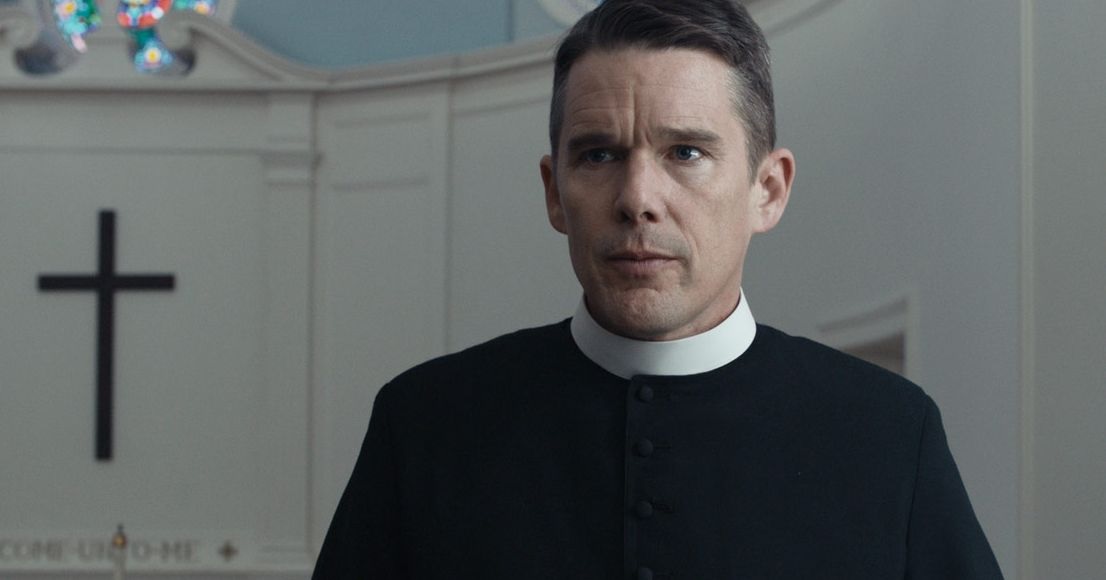
Reverend Ernst Toller (Ethan Hawke) is a solitary, middle-aged parish pastor at a small Dutch Reform church in upstate New York on the cusp of celebrating its 250th anniversary. Once a stop on the Underground Railroad, the church is now a tourist attraction catering to a dwindling congregation, eclipsed by its nearby parent church, Abundant Life, with its state-of-the-art facilities and 5,000-strong flock. When a pregnant parishioner (Amanda Seyfried) asks Reverend Toller to counsel her husband, a radical environmentalist, the clergyman finds himself plunged into his own tormented past, and equally despairing future, until he finds redemption in an act of grandiose violence. From writer-director Paul Schrader (Taxi Driver; American Gigolo; Affliction) comes a gripping thriller about a crisis of faith that is at once personal, political, and planetary.
A trilogy by Ingmar Bergman
Ingmar Bergman
In 1960, Swedish director Ingmar Bergman began work on three of his most powerful and representative films, eventually presented as a trilogy. Already a figure of international acclaim for such masterpieces as The Seventh Seal and The Magician, Bergman turned his back on the expressionism of his fifties work to focus on a series of chamber dramas exploring belief and alienation in the modern age. Collaborating with the distinguished cinematographer Sven Nykvist, and eliciting searing performances from his refined cast of regulars—Harriet Andersson, Gunnar Björnstrand, Gunnel Lindblom, Ingrid Thulin, and Max Von Sydow among them—Bergman unleashed Through a Glass Darkly, Winter Light, and The Silence in rapid succession, exposing moviegoers worldwide to a new level of intellectual and emotional intensity. Drawing on Bergman’s own upbringing and ongoing spiritual crises, the films of the trilogy examine the necessity of religion and question the promise of faith.
Through a Glass Darkly (1961)
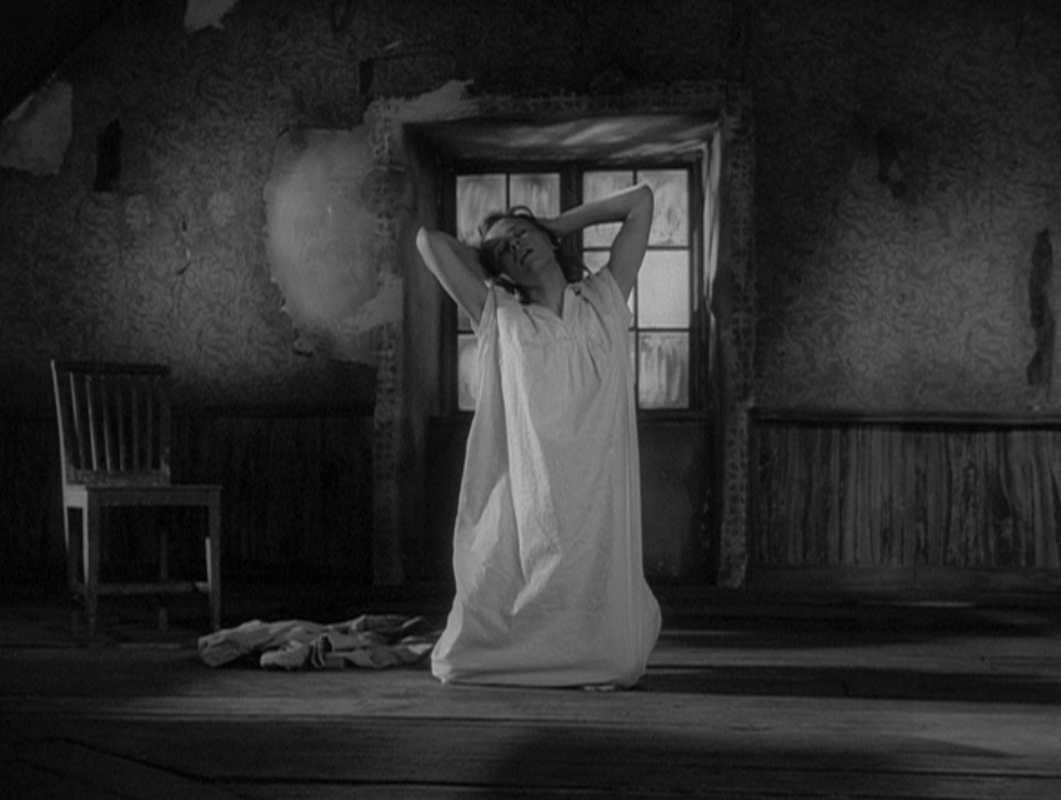
While vacationing on a remote island retreat, a family finds its fragile ties tested when daughter Karin (an astonishing Harriet Andersson) discovers her father (Gunnar Björnstrand) has been using her schizophrenia for his own literary ends. As she drifts in and out of lucidity, Karin’s father, her husband (Max von Sydow), and her younger brother (Lars Passgård) are unable to prevent her descent into the abyss of mental illness. Winner of the Academy Award for best foreign-language film, Through a Glass Darkly, the first work in Ingmar Bergman’s trilogy on faith and the loss of it, presents an unflinching vision of a family’s near disintegration and a tortured psyche further taunted by the intangibility of God’s presence.
Winter Light (1963)
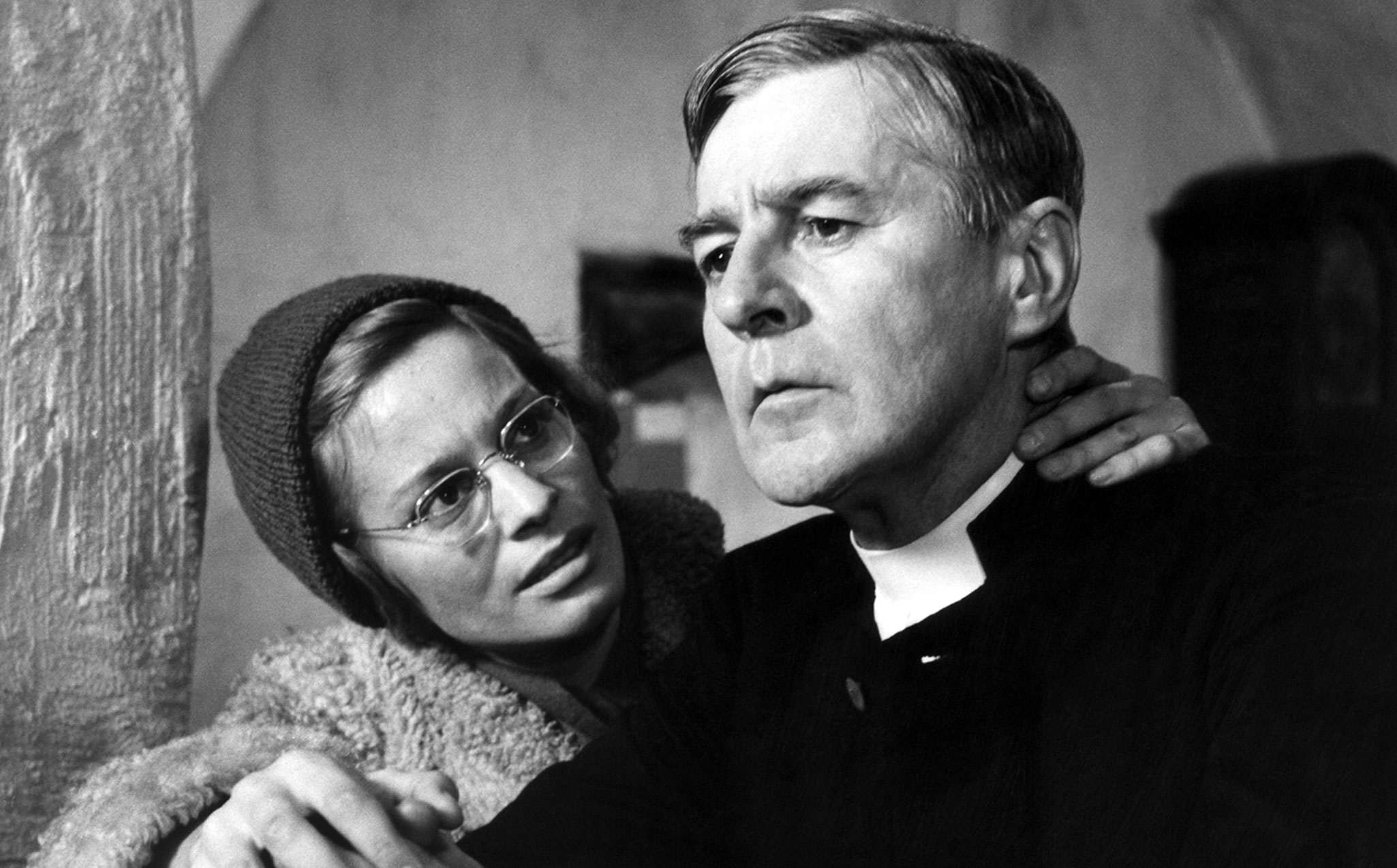
“God, why hast thou forsaken me?” With Winter Light, Ingmar Bergman explores the search for redemption in a meaningless existence. Small-town pastor Tomas Ericsson (Gunnar Björnstrand) performs his duties mechanically before a dwindling congregation, including his stubbornly devoted lover, Märta (Ingrid Thulin). When he is asked to assuage a troubled parishioner’s (Max von Sydow) debilitating fear of nuclear annihilation, Tomas is terrified to find that he can provide nothing but his own doubt. The beautifully photographed Winter Light is an unsettling look at the human craving for personal validation in a world seemingly abandoned by God.
The Silence (1963)
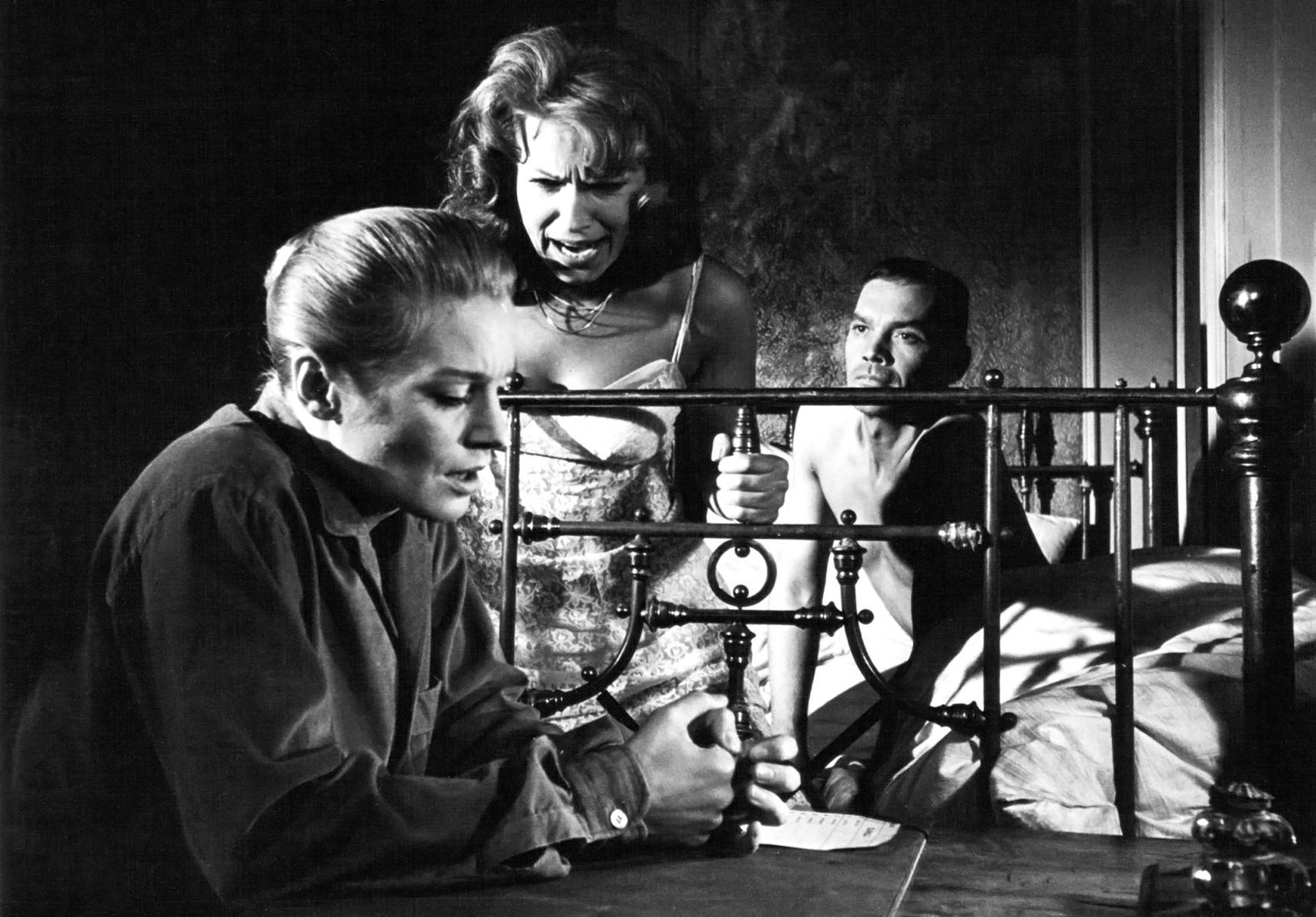
Two sisters—the sickly, intellectual Ester (Ingrid Thulin) and the sensual, pragmatic Anna (Gunnel Lindblom)—travel by train with Anna’s young son, Johan (Jörgen Lindström), to a foreign country that appears to be on the brink of war. Attempting to cope with their alien surroundings, each sister is left to her own vices while they vie for Johan’s affection, and in so doing sabotage what little remains of their relationship. Regarded as one of the most sexually provocative films of its day, Ingmar Bergman’s The Silence offers a disturbing vision of emotional isolation in a suffocating spiritual void.
The Master (2012)
Paul Thomas Anderson

Paul Thomas Anderson writes and directs this Academy Award-nominated drama about a US Navy veteran suffering from post-traumatic stress disorder who seeks salvation in the company of a charismatic cult leader. Joaquin Phoenix stars as Freddie Quell, a troubled drifter who arrives home to post-WWII America shaken, disillusioned and fearful of the future. A raging alcoholic, Quell cannot begin to make sense of his deeply-rooted inner torment, let alone surmount it. When he meets Lancaster Dodd (Philip Seymour Hoffman), the ‘master’ of a cult called The Cause, an intense and ambiguous relationship develops between the two men.
The Seventh Seal (1957)
Ingmar Bergman
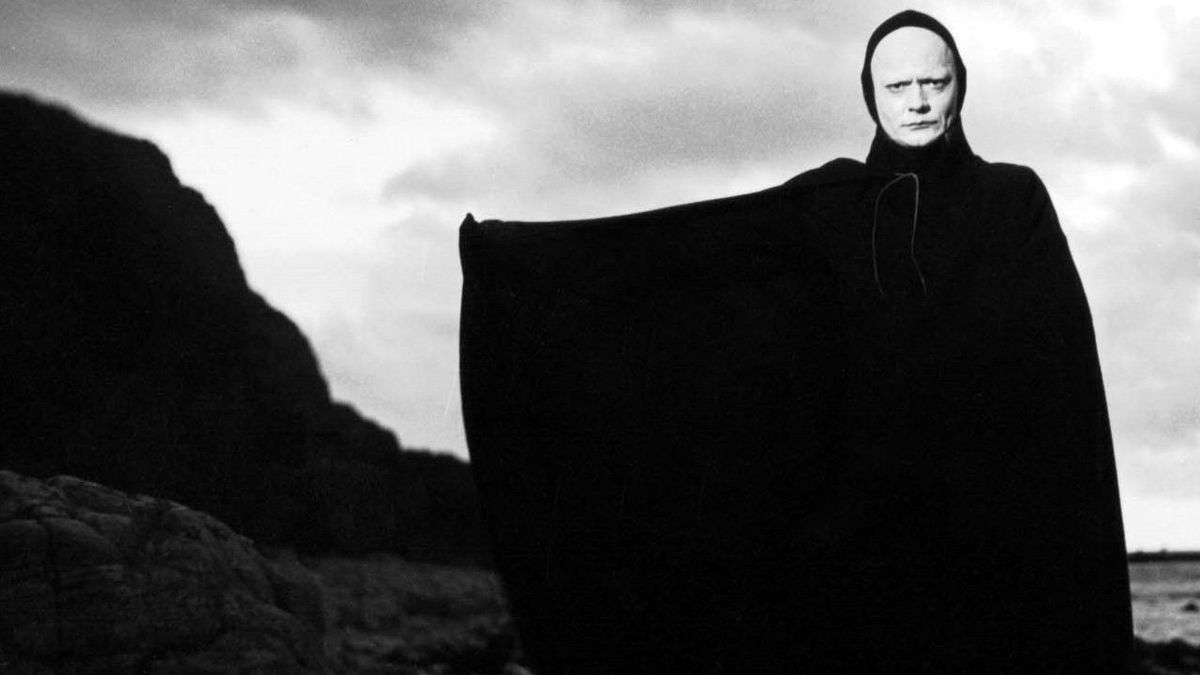
Returning exhausted from the Crusades to find medieval Sweden gripped by the Plague, a knight (Max von Sydow) suddenly comes face-to-face with the hooded figure of Death, and challenges him to a game of chess. As the fateful game progresses, and the knight and his squire encounter a gallery of outcasts from a society in despair, Ingmar Bergman mounts a profound inquiry into the nature of faith and the torment of mortality. One of the most influential films of its time, The Seventh Seal is a stunning allegory of man’s search for meaning and a work of stark visual poetry.
A Serious Man (2009)
Joel and Ethen Coen
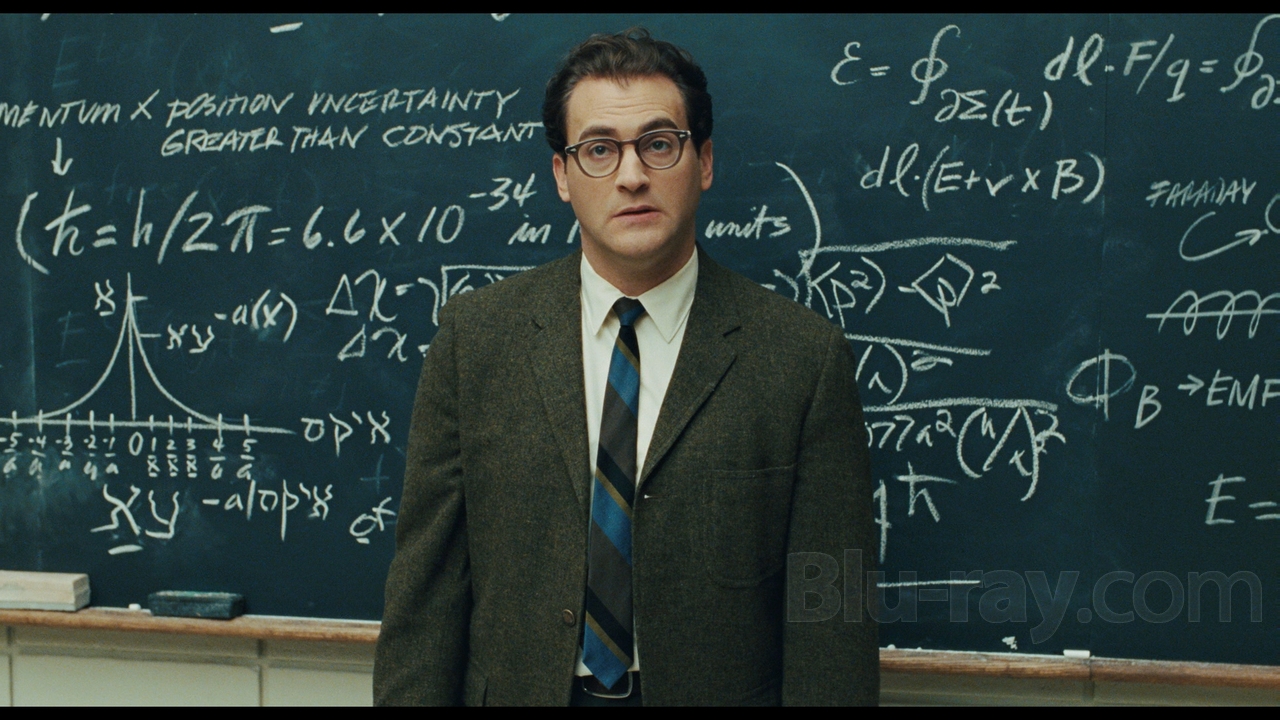
An original and darkly humorous story about one ordinary man’s quest to become a serious man. Physics professor Larry Gopnik can’t believe his life: His wife is leaving him for his best friend, his unemployed brother won’t move off the couch, someone is threatening his career, his kids are a mystery and his neighbor is tormenting him by sunbathing nude. Struggling to make sense of it all, Larry consults three different rabbis and their answers lead him on a twisted journey of faith, family, delinquent behavior and mortality.
Stalker (1979)
Andrei Tarkovsky

Andrei Tarkovsky’s final Soviet feature is a metaphysical journey through an enigmatic postapocalyptic landscape, and a rarefied cinematic experience like no other. A hired guide—the Stalker—leads a writer and a professor into the heart of the Zone, the restricted site of a long-ago disaster, where the three men eventually zero in on the Room, a place rumored to fulfill one’s most deeply held desires. Adapting a science-fiction novel by Arkady and Boris Strugatsky, Tarkovsky created an immersive world with a wealth of material detail and a sense of organic atmosphere. A religious allegory, a reflection of contemporaneous political anxieties, a meditation on film itself—Stalker envelops the viewer by opening up a multitude of possible meanings.
The Tree of Life (2011)
Terrence Malick
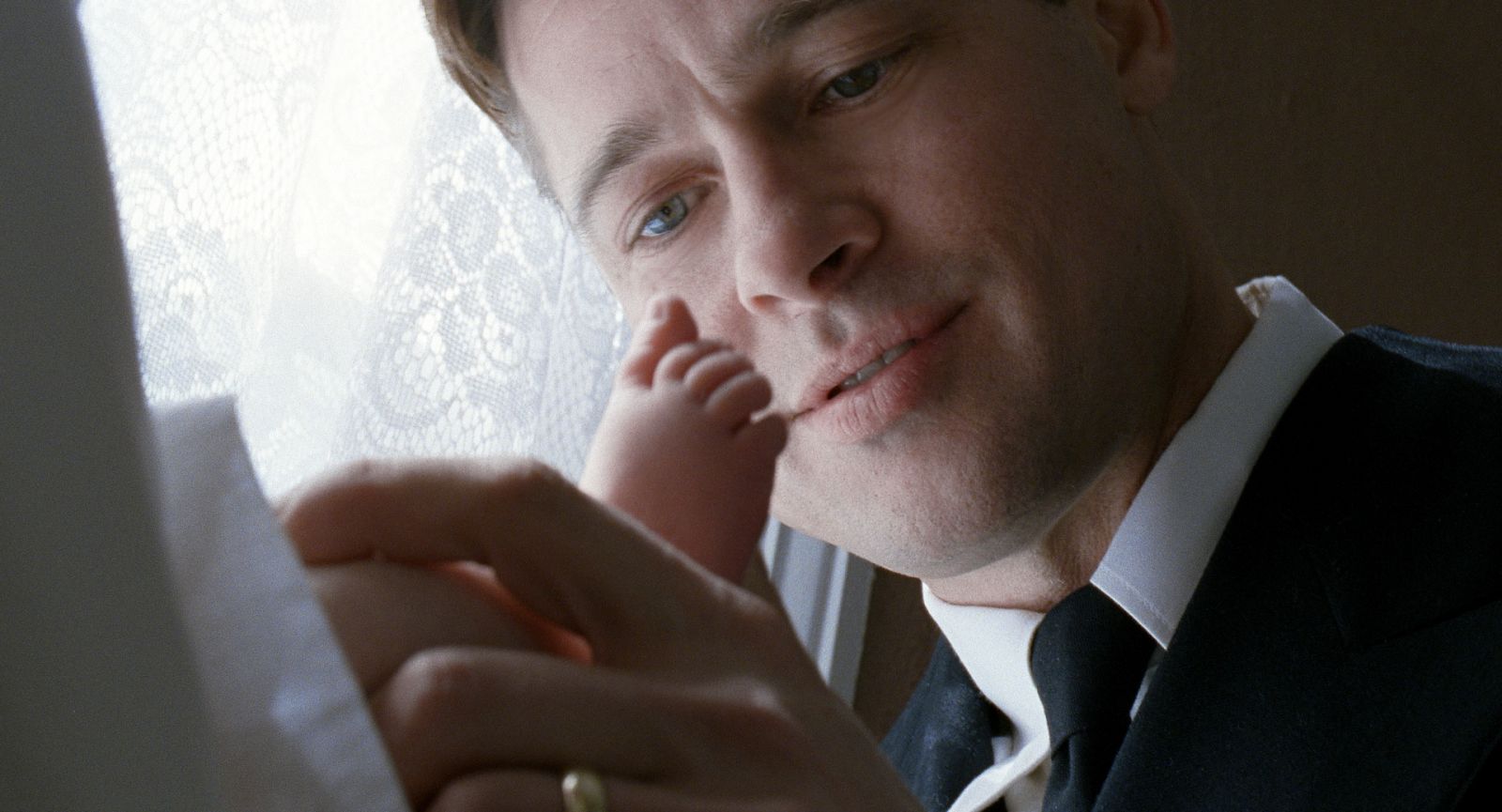
Four decades into an already legendary career, Terrence Malick realized his most rapturous vision to date, tracing a story of childhood, wonder, and grief to the outer limits of time and space. Reaching back to the dawn of creation, Malick sets a story of boyhood memories on a universal scale, charting the coming of age of an awestruck child (newcomer Hunter McCracken) in Texas in the 1950s, as he learns to navigate the extremes of nature and grace represented by his bitter, often tyrannical father (Brad Pitt) and his ethereal, nurturing mother (Jessica Chastain, in her breakout role). Achieved with the aid of cinematographer Emmanuel Lubezki and production designer Jack Fisk, the Palme d’Or–winning The Tree of Life marks the intimately personal, cosmically ambitious culmination of Malick’s singular approach to filmmaking.
Into Great Silence (2005)
Philip Gröning
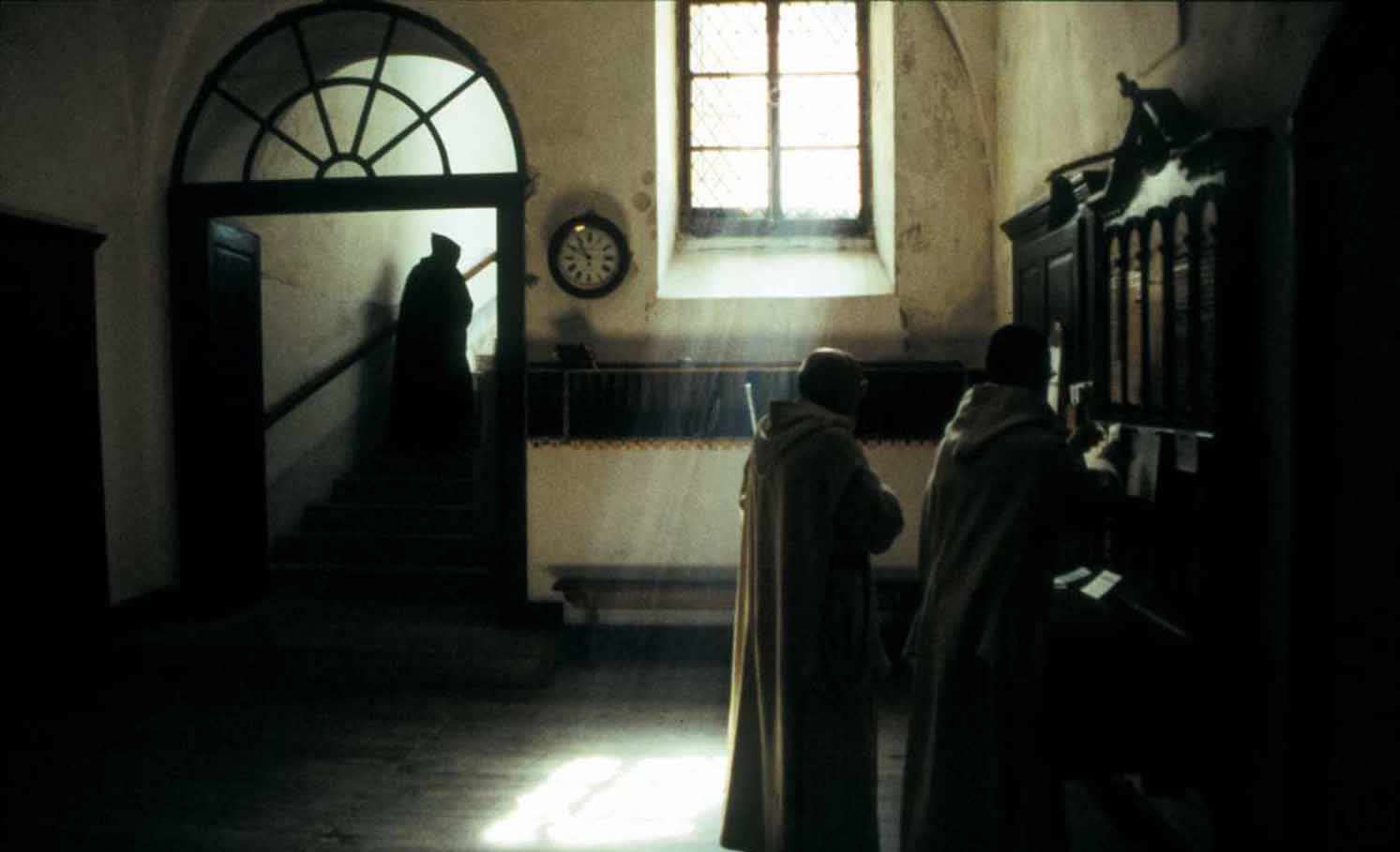
Nestled deep in the postcard-perfect French Alps, the Grande Chartreuse is considered one of the world’s most ascetic monastaries. In 1984, German filmmaker Philip Gröning wrote to the Carthusian order for permission to make a documentary about themn. They said they would get back to him. Sixteen years later, they were ready. Gröning, sans crew or artificial lighting, lived in the monks’ quarters for six months-filming their daily prayers, tasks, rituals, and rare outdoor excursions. This transcendent, closely observed film seeks to embody a monestery, rather than simply depict one - it has no score, no voiceover and no archival footage. What remains is stunningly elemental: time, space, and light. One of the most mesmerizing and poetic chronicles of spirituality ever created, Into Great Silence dissolves the border between screen and audience with a total immersion into the hush of manstic life. More meditation that documentary, it’s a rare, transformative experience.
The Prince of Egypt (1998)
Brenda Chapman, Steve Hickner, Simon Wells
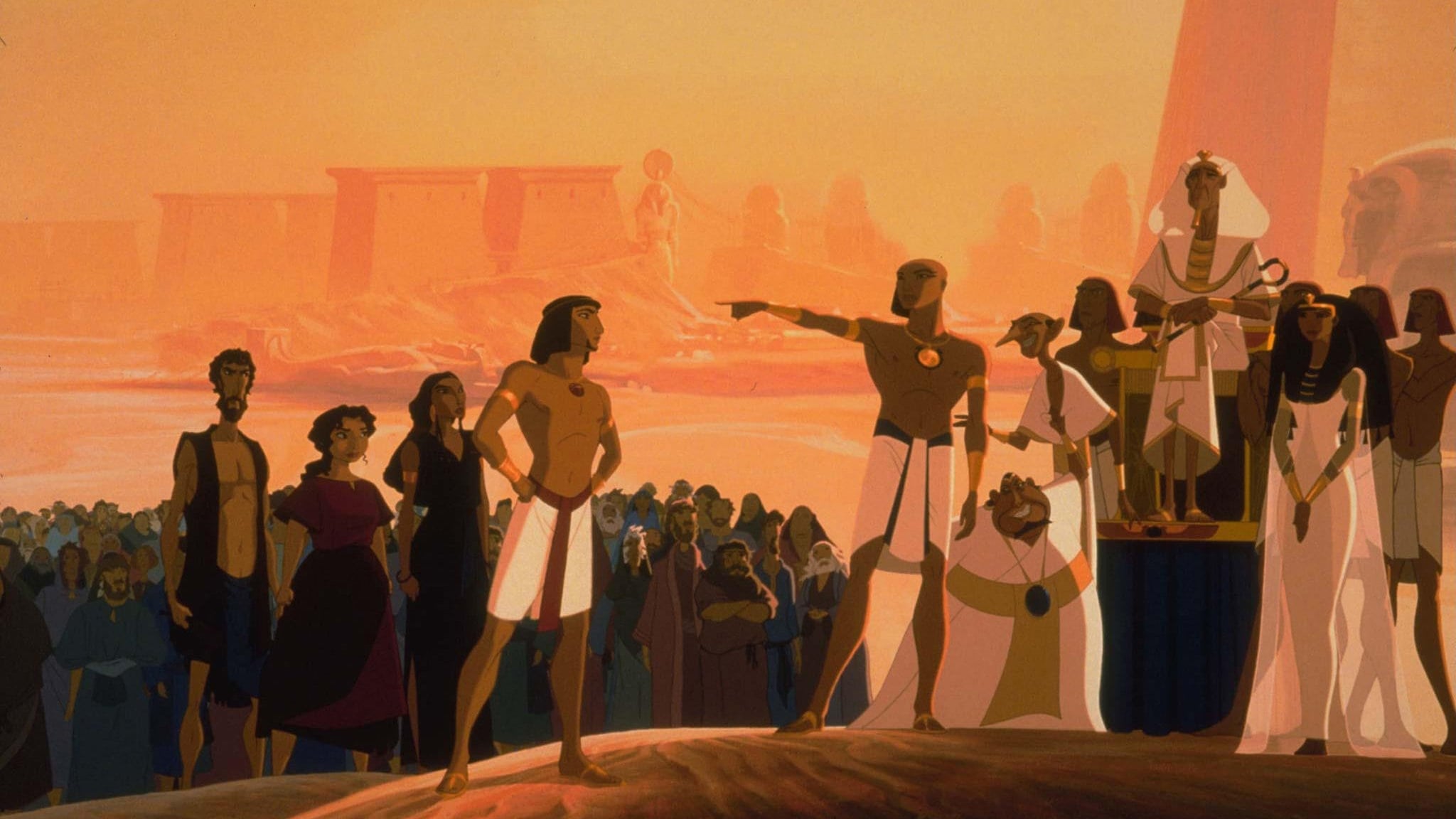
An epic adventure and milestone in cinematic achievement, The Prince of Egypt has captivated movie audiences the world over, becoming one of the top animated films of all time. Unparalleled artistry and powerful Academy Award-winning music bring this beloved story to life as never before. Two brothers—one born of royal blood, the other an orphan with a secret past—grow up as the best of friends sharing a strong bond of free-spirited youth and good-natured rivalry. The truth ultimately sets them at odd as one becomes the ruler of the most powerful empire on earth, the other the chosen leader of his people. Their final confrontation will forever change their lives—and the world. Both spectacular entertainment and a celebration of the human spirit, The Prince of Egypt stands as a classic for the ages, for audiences of every generation to enjoy and cheris